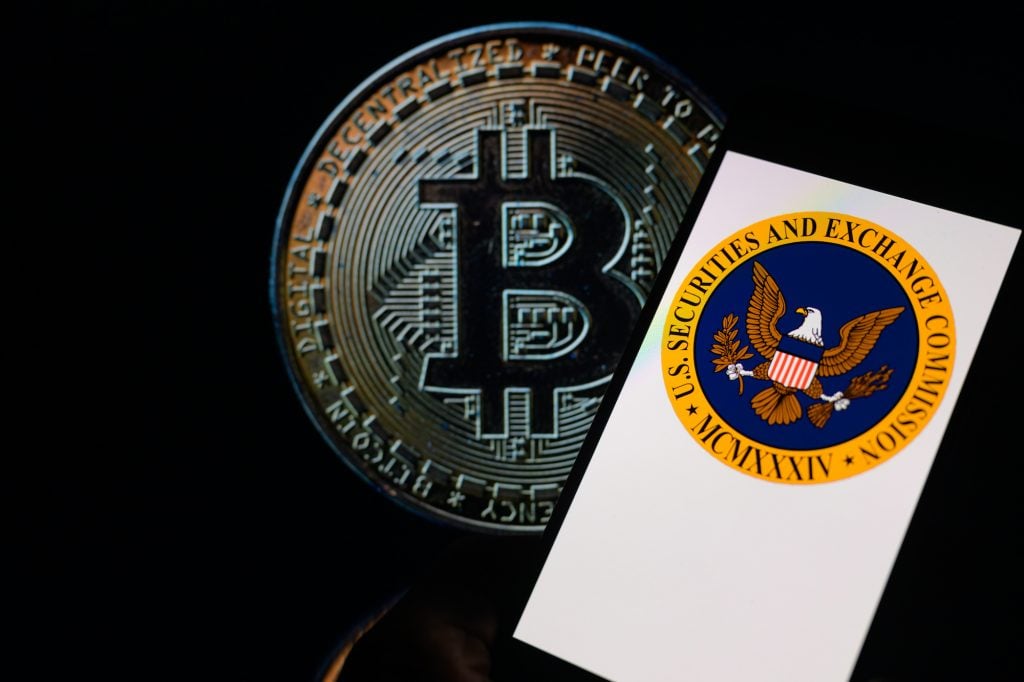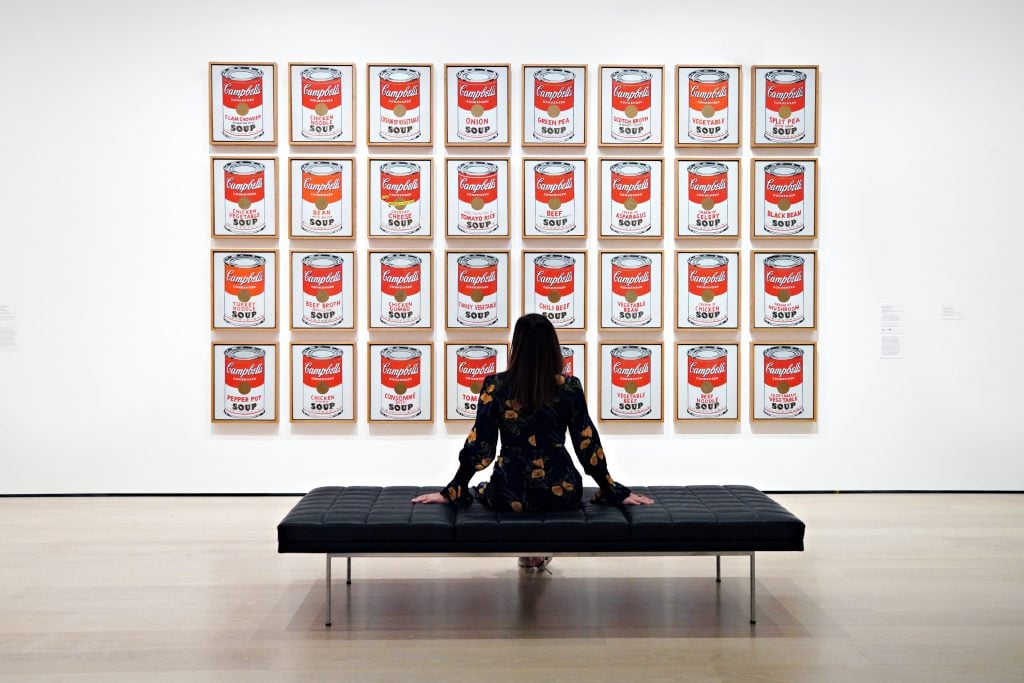Law & Politics
NFT Artists Sue SEC, Disputing Its Regulation of Digital Art Sales
Their suit alleges that the application of securities laws to artworks makes no sense in the physical or digital realm.

Their suit alleges that the application of securities laws to artworks makes no sense in the physical or digital realm.

Eileen Kinsella

In an unprecedented move, two artists have filed a lawsuit against the U.S. Securities and Exchange Commission, challenging the agency’s authority to regulate NFTs or non-fungible tokens.
Musician Jonathan Mann and artist and law professor Brian L. Frye filed a civil complaint in U.S. District Court, Eastern District of Louisiana, on July 29.
“This case is about art,” the claim reads. “More specifically, should art be regulated by the Securities and Exchange Commission? Should artists have to ‘register’ their artwork before selling it to the general public?”
“Should artists be forced to make public disclosures about the ‘risks’ of buying their art? Should artists be required to comply with the federal securities laws, and the thousands of regulations and reams of interpretive guidance thereunder, just to offer their works to the public? Or can artists simply create, and sell, art?” are some of the questions posed by the claim.
The suit, which is asking for a “declaratory judgment,” an opinion or ruling in its favor without having to proceed to trial, posits that the answers to these questions seem “obvious,” noting that it would have been ludicrous to require iconic artists like Jean-Michel Basquiat, Roy Lichtenstein, Georgia O’Keeffe, Jackson Pollock, and Norman Rockwell, to have to “register” their paintings.
The suit alleges that though the application of securities laws to artworks makes no sense in the physical or digital realm, the SEC has nonetheless “begun to wage a campaign to assert jurisdiction over sales of digital art, which should ring alarm bells for every artist and patron in America.”
A representative for the SEC declined to comment.
The lawsuit noted two recent administrative actions by the SEC that indicate it wants to determine when art needs to be registered with the federal government before it can be sold. The actions were against NFT projects known as Impact Theory and Stoner Cats respectively.
In the actions, the SEC charged Impact Theory and Stoner Cats with “conducting an unregistered offering of crypto asset securities in the form of purported non-fungible tokens,” according to the lawsuit. “They sold artwork to the general public. The NFTs were not shares of a company and did not generate any type of dividend or ongoing commitment to generate profits for the purchasers.”
The suit contends that other than the digital nature of the artworks, there was “little conceptual difference between those series of artworks and, say, Andy Warhol’s 1962 series of 32 canvases, called Campbell’s Soup Cans.”

Andy Warhol’s Campbell’s Soup Cans on view at the Museum of Modern Art in New York City, 2020. Photo: Cindy Ord/Getty Images.
Although both of the aforementioned administrative actions were eventually settled, the plaintiffs consider the efforts “a clear statement from the SEC about its view that digital artworks—when accompanied by royalties and public statements regarding the artist’s current and future endeavors, their hopes for the value of those endeavors, and/or their use of profits to support themselves and their endeavors—are securities. The SEC’s position raises a host of unanswered questions for creators, sellers, and buyers of NFTs—chiefly, in what circumstances does the offer and sale of NFTs constitute securities offerings or sales?”
Mann is a singer and songwriter who is known as “Song a Day Mann.” He has written and released one complete song a day since January 1, 2009 and holds the Guinness World Record for “Most Consecutive Days Writing a Song.” His songs range from political commentary to celebrations of the everyday, and he makes his living selling his music digitally, according to the suit.
Frye is a conceptual artist and law professor who lives in New Orleans. His work, Oona’s Veil, is part of the Whitney Museum collection and his work was included in a previous version of the Whitney Biennial. In addition to experimental film, he produces digital art including conceptual multimedia productions related to his legal scholarship. He provides commentary on various fields of law, which he sells as NFTs.
Some of his projects build on and pay tribute to other well known conceptual art works and projects such as Sol LeWitt’s wall drawings and Maurizio Cattelan’s infamous Comedian, a banana duct-taped to a wall, which caused a viral sensation when it debuted at the 2019 edition of Art Basel Miami Beach.
One of his former conceptual art projects, titled SEC-No-Action Letter Request, argues that the sale of conceptual art violates the Securities Act of 1933. Further, it proposes to prove itself by requesting an SEC no-action letter holding that the sale of a work of conceptual art titled “SEC No-Action Letter Request” does not violate the securities laws.
It all began about 20 years ago, when I was a summer associate at Sullivan & Cromwell, researching securities regulation. The more I studied the definition of a security, the more securities reminded me of conceptual art.
— Brian L. Frye (@brianlfrye) July 29, 2024
Over the phone, Frye explained that he met Mann on X (then known as Twitter) a few years ago and banded together out of their shared concerns. “This is our livelihood,” he said. “What happens if the SEC decides to come after us?”
“I’m coming in as someone illustrating, in the best possible way that I can, the absurdity of the position that the SEC is taking in relation to NFT sales,” he added.